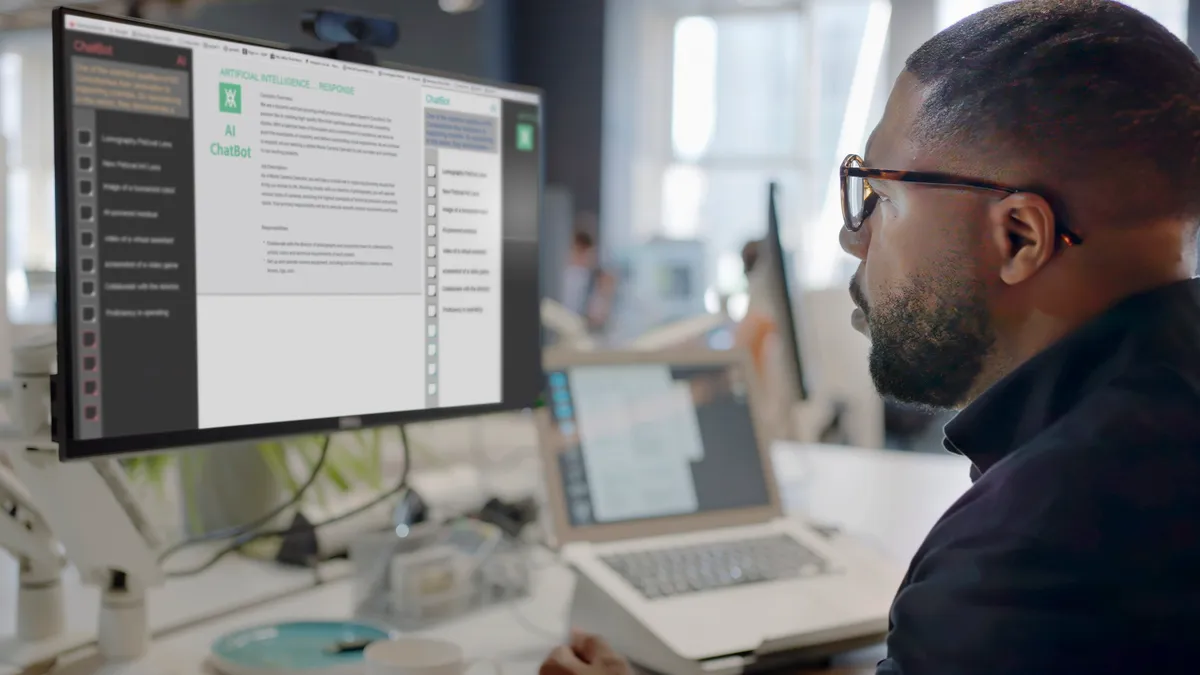In many technology companies and startups today, the idea of innovation is inseparable from company culture.
But there's a difference between company values and having a culture of innovation, according to Jean-Michel Lemieux, SVP of engineering at Shopify, in an interview with CIO Dive. As an executive, half of his job is making sure the environment and community is in place to foster innovation.
An e-commerce company with more than 600,000 merchants across around 175 countries, Shopify rode the wave of the retail industry's transition to digital commerce and mobile platforms. The nature of its product means the company cannot rely on short-term vision: It's a multiyear, even multidecade effort.
Product is the top priority for a business, according to Lemieux, but companies that fixate on the bottom line while ignoring or only paying lip service to innovation will undermine the success and longevity of the product. And the key to innovation is culture.
For a business like Shopify, staying on top of the changing the nature of payments means building out a R&D culture that provides the tools and processes for innovation, promotes employee retention and creates avenues for personal development.
There's a joke in computer science that changing code is easier than changing culture, according to Lemieux. Culture is a joint effort, requiring everyone from the executive team to new employees to serve as "culture custodians."
A culture of innovation, especially in R&D, will look different for every company.
At Shopify, it involves measures such as a few days a week without any meetings and concerted efforts to celebrate and recognize individual's work through town halls and product demo, according to Lemieux. It also involved moving from a "water cooler" communication style to an open information, community style.
Making it happen
Culture requires incremental, gradual changes, from changing the semantics of a platform all the way to closing the diversity gap. It's important for a business to have "antibodies" actively step in and try to fix inverted business priorities or bad processes, Lemieux said.
But the effort pays off: In a study, companies that focused on culture during digital transformation were five times more successful than companies that do not. For employers, this success hinges on focusing externally and engaging with customers and partners; valuing delegation over control; inspiring bold over cautious action; promoting more action and less planning; and valuing collaboration over individual performance.
For managers and executives, it's important to have "manager time" and "maker time," according to Lemieux.
Makers are close to the problems being solved and driven by autonomy, mastery and purpose, and you "can't fake being a maker" by just getting an MBA, he said. Companies founded on innovation are typically started by makers, and maintaining that innovative spirit requires recognizing, supporting and valuing more makers through culture.
But right now, even the most innovative companies suffer from employee turnover. Software companies have the highest turnover rate of any industry at 13.2%.
While some turnover is inevitable, there are steps companies can take to minimize or inverse turnover. Rather than changing companies to get more experiences, Shopify is facilitating workers' movement between projects promoting opportunities for personal development, according to Lemieux.
A business should hire based on growth potential, not only on smarts, so creating the environment and culture that supports development is crucial, he said. Working to this end Shopify started programs including Dev Degree, a work-integrated bachelor's program that helps attract underrepresented groups into tech, and its first R&D summit, a three-day long event this summer for workers to participate in workshops, courses and events.
Investing in the tools that workers use is also important and crucial for innovation, according to Lemieux. And because most problems aren't just technical problems, having cross-functional teams is important. At Shopify, teams always have a data scientist, UX designer and engineer.
Retainment and innovation can also benefit by turning more attention to coders that aren't professional developers or full-time programmers, according to Joel Spolsky, co-founder and CEO of Stack Overflow, in an interview with CIO Dive. Building tools for nonprofessionals, the largest use case of software development, instead of other developers, can open up opportunity and innovation in the business.



















